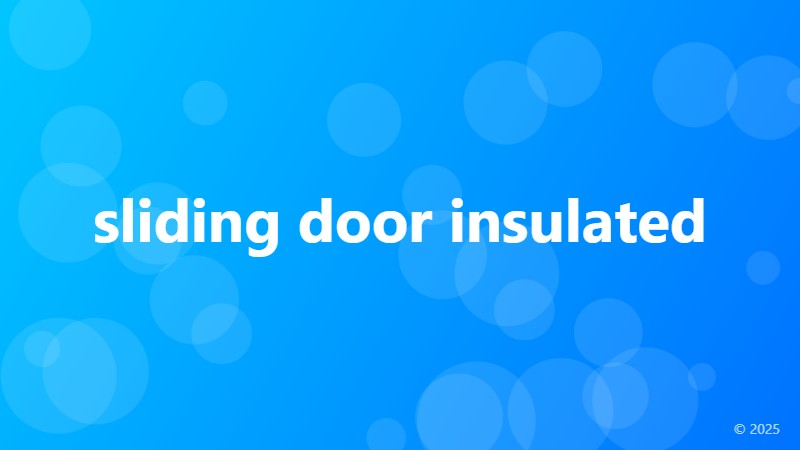sliding door insulated

Benefits of Sliding Door Insulation: Why You Need It
Sliding doors are a popular choice for many homeowners due to their sleek design, ease of use, and ability to bring in natural light. However, one common issue with sliding doors is heat loss and gain, which can lead to increased energy bills and discomfort. This is where sliding door insulation comes in – a game-changer for homeowners looking to optimize their energy efficiency and reduce their carbon footprint.
How Sliding Door Insulation Works
Sliding door insulation typically involves the installation of a thermal break or a thermal barrier between the door frame and the door itself. This barrier prevents heat from escaping or entering through the door, reducing heat transfer and minimizing energy loss. The insulation material used can vary, but common options include foam, fiberglass, and vinyl.
In addition to reducing heat transfer, sliding door insulation can also help to reduce noise pollution and improve overall door performance. By sealing gaps and cracks, insulation can prevent air leaks and reduce the risk of door damage due to weather conditions.
Types of Sliding Door Insulation
There are several types of sliding door insulation available, each with its own unique benefits and characteristics. Some popular options include:
- Thermal break insulation: This type of insulation involves the installation of a thermal break or thermal barrier between the door frame and the door itself.
- Foam insulation: Foam insulation is a popular choice for sliding doors due to its high R-value and ease of installation.
- Fiberglass insulation: Fiberglass insulation is a cost-effective option that provides adequate thermal insulation and can be installed in a variety of door types.
Why You Should Insulate Your Sliding Door
So why should you insulate your sliding door? The benefits are numerous:
- Energy efficiency: Sliding door insulation can help reduce energy bills by minimizing heat loss and gain.
- Comfort: Insulated sliding doors can help maintain a consistent indoor temperature, reducing the risk of drafts and discomfort.
- Noise reduction: Insulation can help reduce noise pollution, making your home a more peaceful and enjoyable space.
- Increased property value: Insulated sliding doors can increase your property value and appeal to potential buyers.
In conclusion, sliding door insulation is a must-have for homeowners looking to optimize their energy efficiency, reduce noise pollution, and improve overall door performance. With various types of insulation available, it's easy to find a solution that suits your needs and budget. So why wait? Insulate your sliding door today and start reaping the benefits!